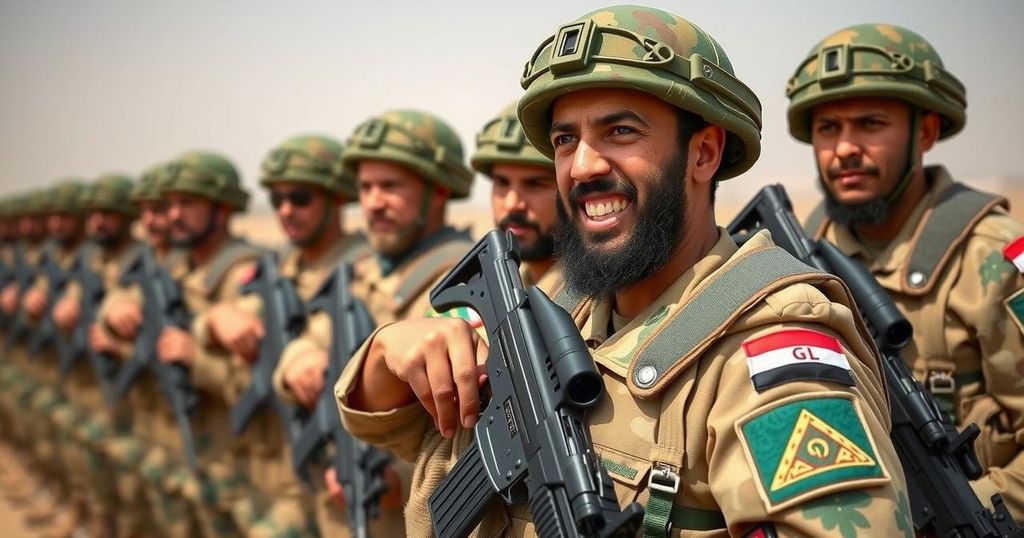Yemen’s military spokesman reports that Iran is enhancing its supply of weapons to the Houthis, enabling them to sustain attacks on Israel and international shipping. This development follows the decline of other Iranian proxies, and the Houthis currently control significant territory in Yemen. Despite airstrikes by the US and UK on Houthi sites, their military operations persist, raising concerns among regional powers about future confrontations.
According to a spokesman for Yemen’s military, Iran is reportedly increasing its weapon supplies to the Houthi militia due to the diminishing strength of other Iranian proxy groups in the region. The spokesman, Abdul Basit Al-Baher, indicated that the Houthis have sufficient weaponry to sustain their assaults on Israel and disrupt global shipping for the foreseeable future. Recent escalations, including multiple missile attacks against Israel, signal Iran’s bolstered support following setbacks faced by groups like Hamas and Hezbollah. Al-Baher emphasized that the Houthis possess advanced missile technology and the infrastructure to produce and assemble drones using Iranian expertise. Despite coordinated military responses from the US and UK against Houthi facilities, the militia maintains a stronghold over a significant portion of Yemen, complicating efforts to diminish their operations.
The current geopolitical climate in the Middle East has seen Iran intensifying its support for the Houthi militia in Yemen, particularly following the weakening of its influence in other regions. With the fall of Assad’s regime and complications for Hezbollah, the Houthis have emerged as a critical element of Iran’s strategy to exert influence and disrupt regional stability. The militia’s control over large areas of Yemen and its capability to launch attacks against perceived adversaries reflect a broader shift in power dynamics within the region, necessitating a reassessment of security strategies by involved nations, including Israel and the United States.
In summary, the increased support from Iran to the Houthi militia represents a significant shift in regional dynamics, as the Houthis capitalize on the vulnerabilities of other Iranian proxies. The military capabilities of the Houthis raise concerns for Israel and global shipping, challenging established security paradigms. Future military actions against the Houthis may hinge on strategic decisions regarding their leadership and the broader implications of Iranian influence in the region, particularly with the upcoming shift in US leadership under Donald Trump, which might lead to escalated military engagement.
Original Source: www.telegraph.co.uk






